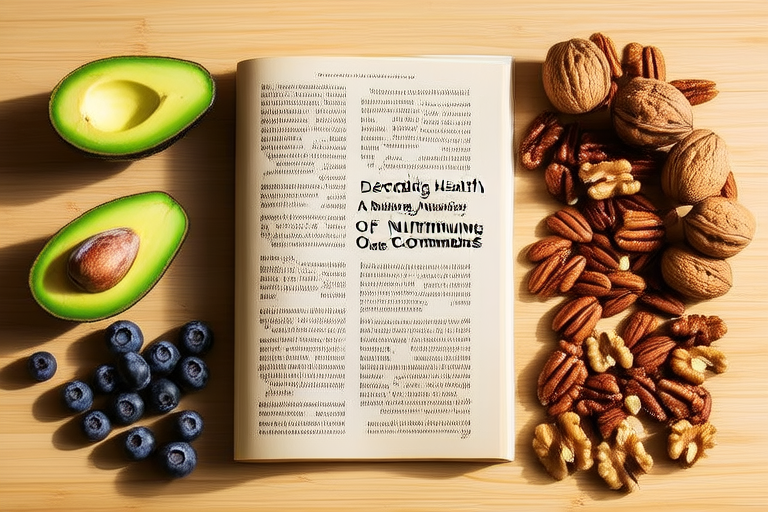Introduction to Different Types of Diets
Dietary choices significantly influence health outcomes, including weight management, disease prevention, and overall well-being. This article explores various diets, examining their macronutrient and micronutrient compositions, benefits, and potential drawbacks. We’ll delve into popular diets such as vegan, ketogenic, paleo, Mediterranean, and intermittent fasting, analyzing their impacts on health.
Vegan Diet
The vegan diet excludes all animal products, including meat, dairy, eggs, and honey. It emphasizes plant-based foods like fruits, vegetables, legumes, nuts, seeds, and whole grains.
Macronutrients
- Carbohydrates: High intake from whole grains, legumes, fruits, and vegetables. Provides energy and fiber.
- Proteins: Derived from plant sources such as beans, lentils, tofu, tempeh, and quinoa. Essential for muscle repair and growth.
- Fats: Healthy fats from avocados, nuts, seeds, and olive oil support heart health and hormone production.
Micronutrients
- Vitamins: Rich in vitamins A, C, E, K, and B-complex vitamins from fruits, vegetables, and fortified foods.
- Minerals: Adequate intake of iron, calcium, magnesium, potassium, and zinc is crucial for bone health, blood pressure regulation, and immune function.
Benefits
Vegan diets promote lower risks of heart disease, high blood pressure, type 2 diabetes, and certain cancers due to higher intakes of dietary fiber, antioxidants, and phytochemicals. They also contribute to environmental sustainability.
Potential Drawbacks
Deficiencies in vitamin B12, iron, calcium, zinc, and omega-3 fatty acids can occur without proper planning. Supplementing these nutrients is recommended.
Ketogenic Diet
The ketogenic diet is characterized by a very low carbohydrate intake (less than 10% of daily calories), moderate protein consumption, and high fat intake (70-80%).
Macronutrients
- Carbohydrates: Minimal intake from non-starchy vegetables, limited fruits, and occasional whole grains. Low carbohydrate levels force the body to burn fat for fuel, leading to ketosis.
- Proteins: Moderate amounts from lean meats, fish, poultry, eggs, and plant-based sources. Essential for muscle maintenance and repair.
- Fats: High intake from sources like avocado, nuts, seeds, coconut oil, and olive oil. Supports brain function and hormone production.
Micronutrients
- Vitamins: Good sources include leafy greens, berries, and fortified dairy alternatives. Essential for cellular metabolism and immune function.
- Minerals: Important minerals come from seafood, dairy alternatives, and fortified foods. Necessary for bone health, fluid balance, and enzyme activity.
Benefits
The ketogenic diet promotes rapid weight loss, improves glycemic control in diabetics, and may enhance cognitive function. It also has anti-inflammatory properties.
Potential Drawbacks
Side effects like constipation, fatigue, and nutrient deficiencies can occur if not properly planned. Long-term adherence may lead to kidney stones and increased cholesterol levels.
Paleo Diet
The paleo diet mimics the eating habits of our ancestors during the Paleolithic era, emphasizing whole, unprocessed foods.
Macronutrients
- Carbohydrates: Primarily from fruits, vegetables, and tubers. Provides essential nutrients and fiber.
- Proteins: From lean meats, fish, poultry, eggs, and plant-based sources. Vital for muscle growth and repair.
- Fats: Healthy fats from nuts, seeds, avocado, and olive oil support heart health and hormone production.
Micronutrients
- Vitamins: Abundant in fruits, vegetables, and fortified foods. Essential for cellular metabolism and immune function.
- Minerals: Found in seafood, dairy, and fortified foods. Necessary for bone health, fluid balance, and enzyme activity.
Benefits
The paleo diet encourages weight loss, improved blood sugar control, and enhanced cardiovascular health. It also supports digestive health and reduces inflammation.
Potential Drawbacks
Limited intake of dairy and whole grains may lead to deficiencies in calcium, vitamin D, and fiber. Proper planning and supplementation are necessary.
Mediterranean Diet
The Mediterranean diet focuses on plant-based foods, healthy fats, and moderate consumption of fish, poultry, and dairy products.
Macronutrients
- Carbohydrates: Predominantly from whole grains, fruits, and vegetables. Provides energy and fiber.
- Proteins: From fish, poultry, eggs, dairy, and plant-based sources. Essential for muscle maintenance and repair.
- Fats: Healthy fats from olive oil, nuts, seeds, and fatty fish support heart health and hormone production.
Micronutrients
- Vitamins: Abundant in fruits, vegetables, and fortified foods. Essential for cellular metabolism and immune function.
- Minerals: Found in seafood, dairy, and fortified foods. Necessary for bone health, fluid balance, and enzyme activity.
Benefits
The Mediterranean diet reduces the risk of heart disease, stroke, and certain cancers. It also promotes longevity and cognitive health.
Potential Drawbacks
High consumption of red wine may lead to alcohol-related issues. Proper portion control and moderation are important.
Intermittent Fasting
Intermittent fasting involves alternating between periods of eating and fasting. Common methods include 16:8 (fasting for 16 hours, eating for 8) or alternate-day fasting.
Macronutrients
- Carbohydrates: Intake varies depending on the feeding window but generally includes whole grains, fruits, and vegetables.
- Proteins: From lean meats, fish, poultry, eggs, and plant-based sources. Essential for muscle maintenance and repair.
- Fats: Healthy fats from nuts, seeds, avocado, and olive oil support heart health and hormone production.
Micronutrients
- Vitamins: Abundant in fruits, vegetables, and fortified foods. Essential for cellular metabolism and immune function.
- Minerals: Found in seafood, dairy, and fortified foods. Necessary for bone health, fluid balance, and enzyme activity.
Benefits
Intermittent fasting promotes weight loss, enhances insulin sensitivity, and improves metabolic health. It also has anti-aging properties and supports brain function.
Potential Drawbacks
May lead to overeating during feeding windows, nutrient deficiencies, and negative effects on mental health. Proper planning and guidance are essential.
Conclusion
Each diet offers unique benefits and potential drawbacks. The vegan diet promotes environmental sustainability and reduces disease risks but requires careful planning to avoid nutrient deficiencies. The ketogenic diet facilitates rapid weight loss and improved glycemic control but may cause side effects and long-term health concerns. The paleo diet supports digestive health and reduces inflammation but limits dairy and whole grains. The Mediterranean diet reduces heart disease and stroke risks while promoting longevity and cognitive health. Intermittent fasting enhances metabolic health and supports brain function but may lead to overeating and nutrient deficiencies.
Choosing the right diet depends on individual health goals and needs. Consultation with healthcare professionals is recommended to ensure safety and effectiveness. Tailoring dietary choices to personal preferences, cultural backgrounds, and medical conditions ensures optimal health outcomes.










